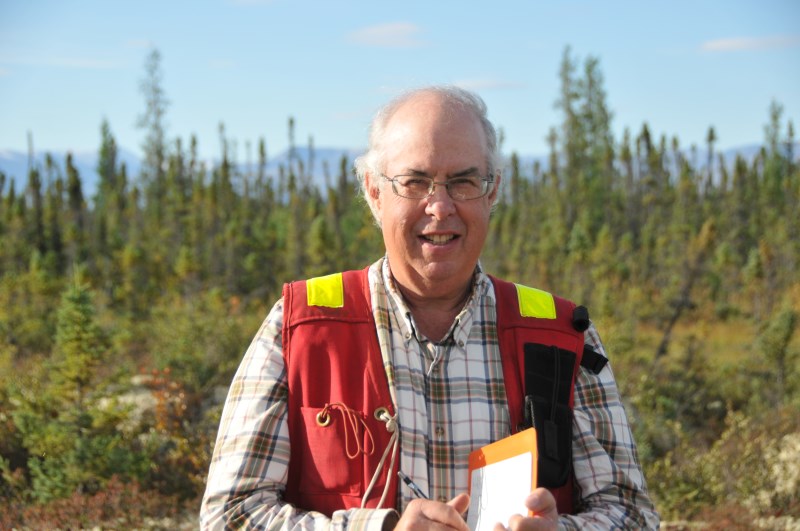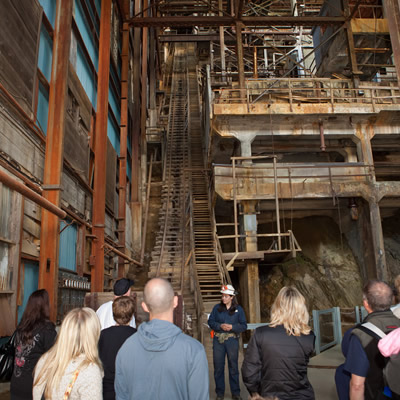ABOUT CLRA | ACRSD
British Columbia Chapter
—
The British Columbia Technical and Research Committee on Reclamation originated in the early 1970's, in response to a demonstrated need in BC for greater government-industry communications in the area of environmental protection and reclamation associated with mining.
The BC Chapter representative on the National Board is Justin Straker.
JOIN THE NETWORK
CONNECT
—
British Columbia Chapter
Updates
—
#CLRANews Highlights
The CLRA National Newsletter is now available! 2023 membership renewals are now open, check your inbox for a renewal reminder or log in today to update your information. Make sure to save the date for the upcoming CLRA National 2023 AGM and the Alberta Chapter 2023 AGM and Conference. Also, this is the last call to submit an Award nomination to all of our distinguished awards, nominations are due by December 31st.
#CLRANews Highlights
Save the date for the CLRA Alberta Chapter AGM & Conference on Feb 22 to 24, 2023. We are excited to host the 2023 conference in a new location in downtown Edmonton.
The deadline for nominations for the Edward M Watkin Award, IN-TECH Reclamation Awards, The Dr. Jack Winch Early Career Award, and the Linda Jones Memorial Award have been extended to December 31st, 2022.
Are you on the lookout for an exciting career in Reclamation? Be sure to check out several new job postings available with some of our member organizations, including @SUMMIT, An Earth Services Company and @North Shore Environmental Consultants Inc..
#CLRANews Highlights
The Scientific Committee of the RE3 Conference is still accepting new proposals for symposia, workshops, and training courses, until October 3, 2022.
The CLRA has almost met our goal of raising $5000 for the Andrea McEachern Memorial Scholarship. The CLRA and Preston McEachern will match the donation amounts (up to 5K) collected. We are now accepting donations until October 17, 2022.
The deadline for nominations for the Edward M Watkin Award, IN-TECH Reclamation Awards, The Dr. Jack Winch Early Career Award and the Linda Jones Memorial Award have been extended to December 31st, 2022.
#CLRANews Highlights
We are proud of the CLRA Alberta Chapter’s 2022 Conference program in Red Deer and encourage you to check out the presentations and proceedings. Also, check out some photos from the event!
Two Linda Jones Memorial awards are presented annually to students in a reclamation related program at a Canadian institution in recognition of excellence in academic studies which advance the theory, knowledge, or practice of land reclamation. One award will be for a poster presentation and one for an oral presentation. Each award will be for $1000 and a one-year membership in the CLRA.
Please login to update your contact information by September 15th for inclusion in the published CLRA National Membership Directory. The Corporate Member Directory is publicly available on the website and published in the Fall/Winter 2022 Canadian Reclamation Magazine annually.
#CLRANews Highlights
The Atlantic Chapter of the Canadian Land Reclamation Association (CLRA) is pleased to announce the 2022 Atlantic Reclamation Conference (ARC2022). This years conference will be held at the Cox Institute of the Dalhousie Truro Campus, November 8-10, 2022. At this time, the organizing committee is seeking individuals who are interested in presenting an oral or poster presentation at the conference. We have received many submissions already and the deadline for submissions is still open.
The Scientific Program Committee, on behalf of the Society for Ecological Restoration – Eastern Canada (SER-EC) and Canadian Land Reclamation Association (CLRA) in cooperation with the Ontario chapter of SER (SER-O), the Canadian chapter of the Society of Wetland Scientists (SWS Canada), the International Peatland Society (IPS) and the International Society for Horticultural Science (ISHS) is now inviting new proposals for symposia, workshops, and training courses to be held at RE3 2023 Conference: Reclaim, Restore, Rewild, from 11–15 June, 2023 in Quebec City, Canada.
The Andrea McEachern Memorial Scholarship honours Andrea McEachern and will be awarded annually to a candidate that exemplifies volunteerism and initiative in the reclamation/remediation industry. The CLRA and Preston McEachern will match the donation amounts (up to 5K) collected by September 17, 2022, and for the years to come.
Like other conferences in 2020, the 27th Annual BC-MEND ML/ARD Workshop was changed to a virtual event. The conference retained the half-hour presentation format and there were eighteen presentations with three-half day sessions on December 1, 2, and 3. The extra capacity of the virtual format allowed the conference to provide free registration to Canadian students, First Nations, and community groups. Money saved on not having a social for thirsty delegates allowed the conference to cut the registration fee for everyone else from $200 to $50. Seven hundred registrants from across Canada and abroad was a record.
Traditional reclamation of mines and other large disturbances have focused on seeding the sites with non-native agronomic grasses and legumes. However, this has been found to prevent the recovery of the sites rather than assisting the recovery so a technique that controlled erosion and promoted recovery without constraints was needed. Understanding erosion processes is the key to finding solutions. Erosion happens when raindrops hit bare soil, lifting soil particles (up to 224 tons/ha, Gray and Leiser, 1982). The particles are then available to wash down the slope, causing erosion. How is it that this does not happen in natural systems? Of course, a vegetation cover helps, but even before there is a vegetation cover on sites, how do natural systems prevent water from running across the land?
We are conducting research into British Columbia’s reclamation and restoration economy on behalf of the Canadian Forest Service, Natural Resources Canada, and the Canadian Wildlife Service, Environment and Climate Change Canada. This research is an important step towards quantifying the contribution of the reclamation and restoration industry to the British Columbia economy. The study will also help demonstrate the critical role of reclamation and restoration in ensuring that British Columbia can achieve sustainable resource development and sustainable cities. Your response will make a difference.
Day 1 (Sept 16) started the conference off with a workshop on ‘Landform Design for Sustainable Mine Reclamation’.
Day 2 (Sept 17) was a fabulous and highly informative tour of the former Sullivan Mine in Kimberley, British Columbia. Sullivan Mine was once a major producer of zinc, lead, and silver. After operating for nearly 100 years, it is now an example of a successful mine closure — a process that included collaboration between Teck and the local community of Kimberley to create lasting benefits.




